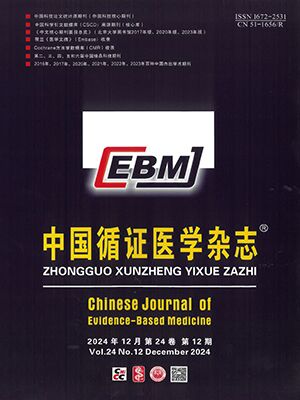| 1. |
Hegedüs L, Bonnema SJ, Bennedbaek FN. The treatment of benign nontoxic nodular goiter (NNG) is controversial-2003 Management of simple nodular goiter:current status and future perspectives. Endocr Rev, 2003, 24(1):102-132.
|
| 2. |
Bonnema SJ, Bennedbaek FN, Wiersinga WM, et al. Management of the nontoxic multinodular goitre:a European questionnaire study. Clin Endocrinol (Oxf), 2000, 53(1):5-12.
|
| 3. |
Nygaard B, Hegedus L, Gervil M, et al. Radioiodine treatment of multinodular non-toxic goitre. BMJ, 1993, 307(6908):828-832.
|
| 4. |
Nielsen VE, Bonnema SJ, Boel-Jørgensen H, et al. Stimulation with 0.3-mg recombinant human thyrotropin prior to iodine 131 therapy to improve the size reduction of benign nontoxic nodular goiter:a prospective randomized double-blind trial. Arch Intern Med, 2006, 166(14):1476-1482.
|
| 5. |
Pedersen-Bjergaard U, Kirkegaard C. Serum TSH and the response to radioiodine treatment of toxic multinodular goitre. Eur J Endocrinol, 1997, 137(4):365-369.
|
| 6. |
Huysmans DA, Nieuwlaat WA, Erdtsieck RJ, et al. Administration of a single low dose of recombinant human thyrotropin significantly enhances thyroid radioiodide uptake in nontoxic nodular goiter. J Clin Endocrinol Metab, 2000, 85(10):3592-3596.
|
| 7. |
Nieuwlaat WA, Hermus AR, Sivro-Prndelj F, et al. 2001 Pretreatment with recombinant human TSH changes the regional distribution of radioiodine on thyroid scintigrams of nodular goiters. J Clin Endocrinol Metab, 2001, 86(11):5330-5336.
|
| 8. |
Diehl LA, Garcia V, Bonnema SJ, et al. Latin American Throid Society. Management of the nontoxic multinodular goiter in Latin America:comparison with North America and Europe, an electronic survey. J Clin Endocrinol Metab, 2005, 90(1):117-123.
|
| 9. |
de Keizer B, Hoekstra A, Konijnenberg MW, et al. Bone marrow dosimetry and safety of high 131I activities given after recombinant human thyroid-stimulating hormone to treat metastatic differentiated thyroid cancer. J Nucl Med, 2004, 45(9):1549-1554.
|
| 10. |
Albino CC, Graf H, Paz-Filho G, et al. Radioiodine plus recombinant human thyrotropin do not cause acute airway compression and are effective in reducing multinodular goiter. Braz J Med Biol Res, 2010, 43(3):303-309.
|
| 11. |
Cubas ER, Paz-Filho GJ, Olandoski M, et al. Recombinant human TSH increases the efficacy of a fixed activity of radioiodine for treatment of multinodular goitre. Int J Clin Pract, 2009, 63(4):583-590.
|
| 12. |
Silva MN, Rubió IG, Romão R, et al. Administration of a single dose of recombinant human thyrotrophin enhances the efficacy of radioiodine treatment of large compressive multinodular goitres. Clin Endocrinol, 2004, 60(3):300-308.
|
| 13. |
Bonnema SJ, Nielsen VE, Boel-Jørgensen H, et al. Improvement of goiter volume reduction after 0.3 mg recombinant human thyrotropin-stimulated radioiodine therapy in patients with a very large goiter:a double-blinded, randomized trial. J Clin Endocrinol Metab, 2007, 92(9):3424-3428.
|
| 14. |
Fast S, Hegedüs L, Grupe P, et al. Recombinant human thyrotropinstimulated radioiodine therapy of nodular goiter allows major reduction of the radiation burden with retained efficacy. J Clin Endocrinol Metab, 2010, 95(8):3719-3725.
|
| 15. |
Duick DS, Baskin HJ. Significance of radioiodine uptake at 72 hours versus 24 hours after pretreatment with recombinant human thyrotropin for enhancement of radioiodine therapy in patients with symptomatic nontoxic or toxic multinodular goiter. Endocr Pract, 2004, 10(3):253-260.
|
| 16. |
Paz-Filho GJ, Mesa-Junior CO, Olandoski M, et al. Effect of 30 mCi radioiodine on multinodular goiter previously treated with recombinant human thyroid-stimulating hormone. Braz J Med Biol Res, 2007, 40(12):1661-1670.
|
| 17. |
Pena S, Arum S, Cross M, et al. 123I thyroid uptake and thyroid size at 24, 48, and 72 hours after the administration of recombinant human thyroid-stimulating hormone to normal volunteers. J Clin Endocrinol Metab, 2006, 91(2):506-510.
|
| 18. |
Braverman L, Kloos RT, Law B Jr, et al. Evaluation of various doses of recombinant human thyrotropin in patients with multinodular goiters. Endocr Pract, 2008, 14(7):832-839.
|
| 19. |
Fast S, Nielsen VE, Grupe P, et al. 2009 Optimizing 131I uptake after rhTSH stimulation in patients with nontoxic multinodular goiter: evidence from a prospective, randomized,double-blind study. J Nucl Med, 2009, 50(5):732-737.
|
| 20. |
Huysmans DA, Nieuwlaat WA, Erdtsieck RJ, et al. Administration of a single low dose of recombinant human thyrotropin significantly enhances thyroid radioiodide uptake in nontoxic nodular goiter. J Clin Endocrinol Metab, 2000, 85(10):3592-3596.
|
| 21. |
Nielsen VE, Bonnema SJ, Boel-Jørgensen H, et al. Recombinant human thyrotropin markedly changes the 131I kinetics during 131I therapy of patients with nodular goiter:an evaluation by a randomized double-blinded trial. J Clin Endocrinol Metab, 2005, 90(1):79-83.
|
| 22. |
Torres MS, Ramirez L, Simkin PH, et al. Effect of various doses of recombinant human thyrotropin on the thyroid radioactive iodine uptake and serum levels of thyroid hormones and thyroglobulin in normal subjects. J Clin Endocrinol Metab, 2001, 86(4):1660-1664.
|
| 23. |
Nielsen VE, Bonnema SJ, Hegedüs L. Effects of 0.9 mg recombinant human thyrotropin on thyroid size and function in normal subjects: a randomized, double-blind, cross-over trial. J Clin Endocrinol Metab, 2004, 89(5):2242-2247.
|
| 24. |
Nielsen VE, Bonnema SJ, Hegedüs L. Transient goiter enlargement after administration of 0.3 mg of recombinant human thyrotropin in patients with benign nontoxic nodular goiter:a randomized,doubleblind, crossover trial. J Clin Endocrinol Metab, 2006, 91(4):1317-1322.
|
| 25. |
Giusti M, Caputo M, Calamia I, et al. Long-term outcome of low-activity radioiodine administration preceded by adjuvant recombinant human TSH pretreatment in elderly subjects with multinodular goiter. Thyroid Res, 2009, 2(1):6.
|
| 26. |
Paz-Filho GJ, Mesa-Junior CO, Olandoski M, et al. Effect of 30 mCi radioiodine on multinodular goiter previously treated with recombinant human thyroid-stimulating hormone. Braz J Med Biol Res, 2007, 40(12):1661-70.
|
| 27. |
Braverman L, Kloos RT, Law B Jr, et al. Evaluation of various doses of recombinant human thyrotropin in patients with multinodular goiters. Endocr Pract, 2008, 14(7):832-839.
|
| 28. |
Rubio IG, Perone BH, Silva MN, et al. Human recombinant TSH preceding a therapeutic dose of radioiodine for multinodular goiters has no significant effect in the surge of TSH-receptor and TPO antibodies. Thyroid, 2005, 15(2):134-139.
|




